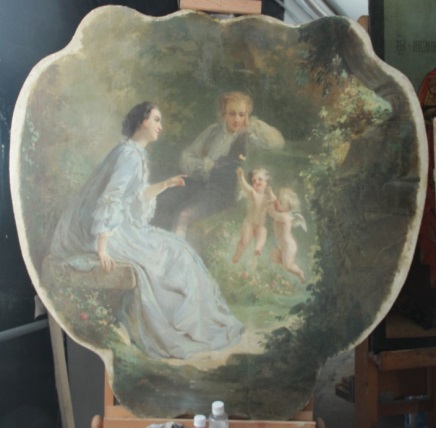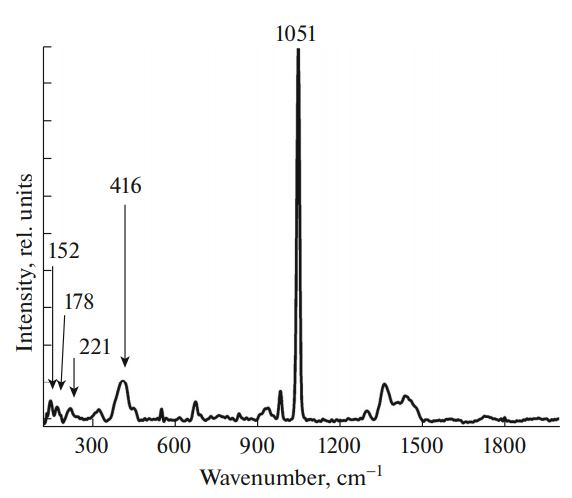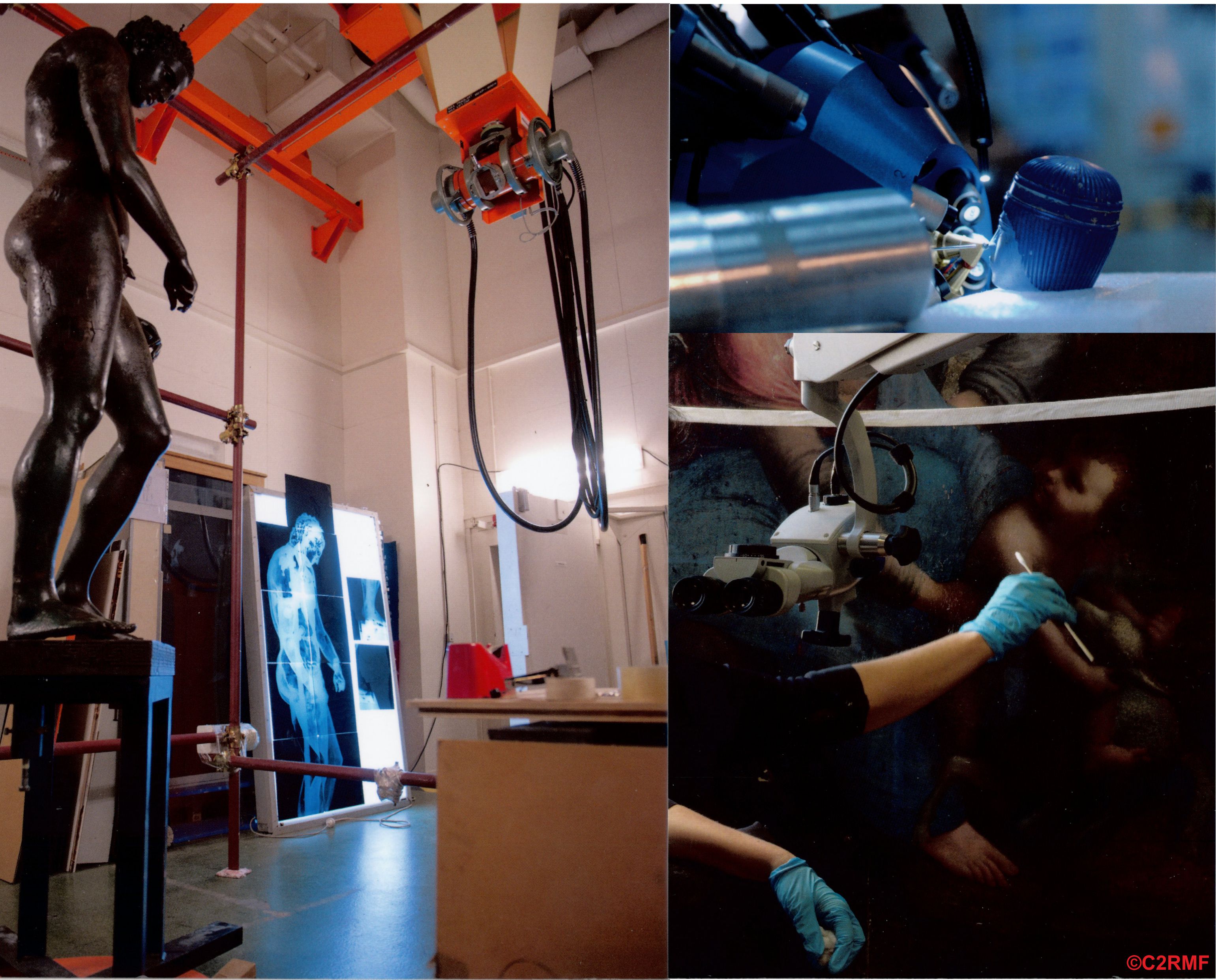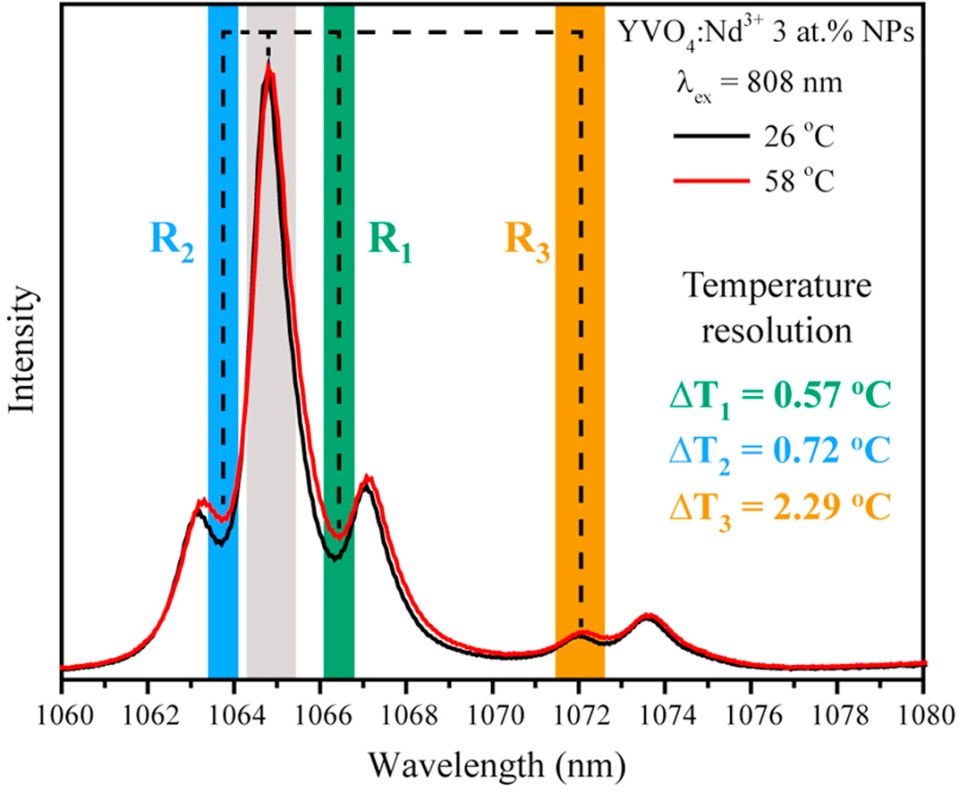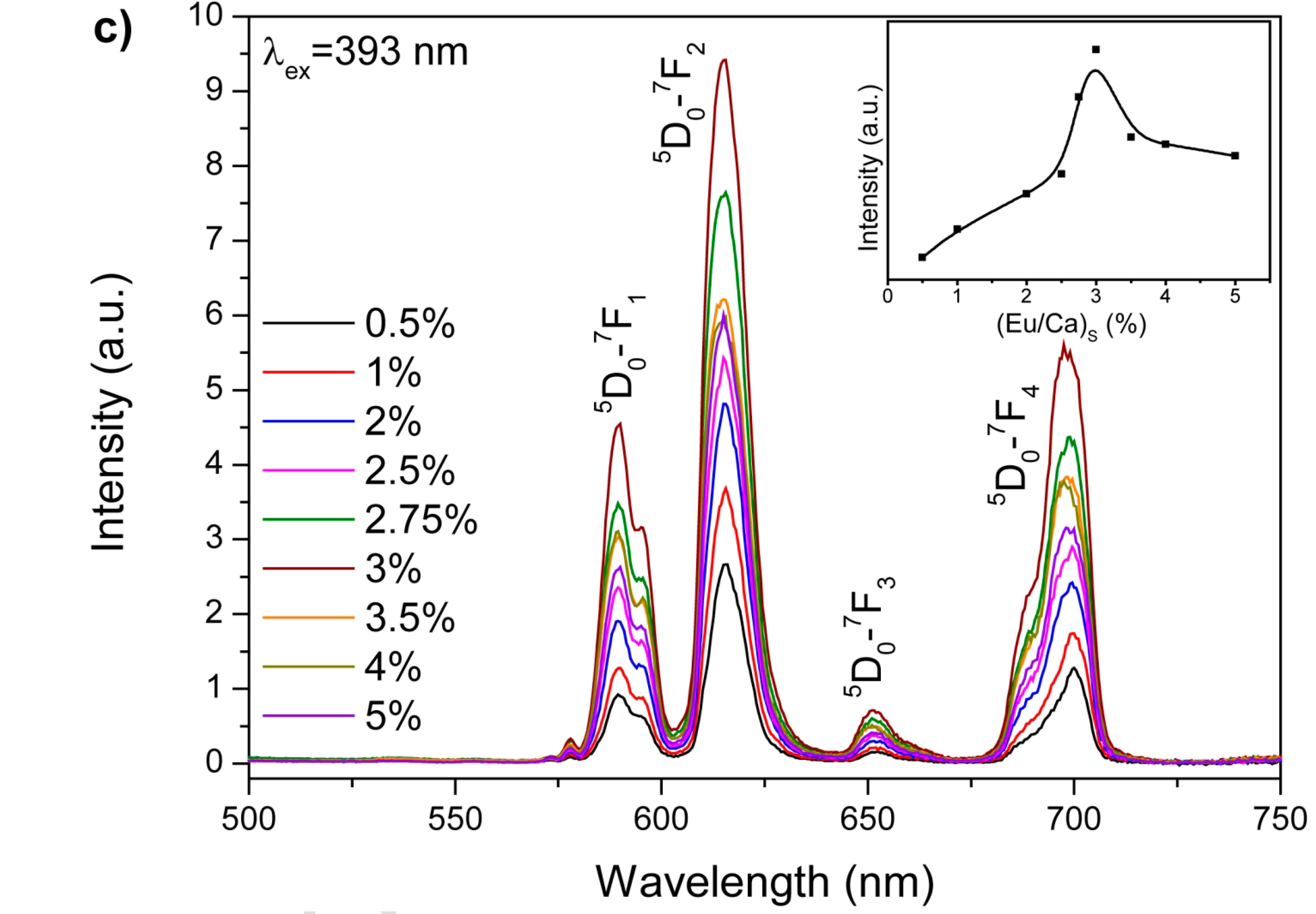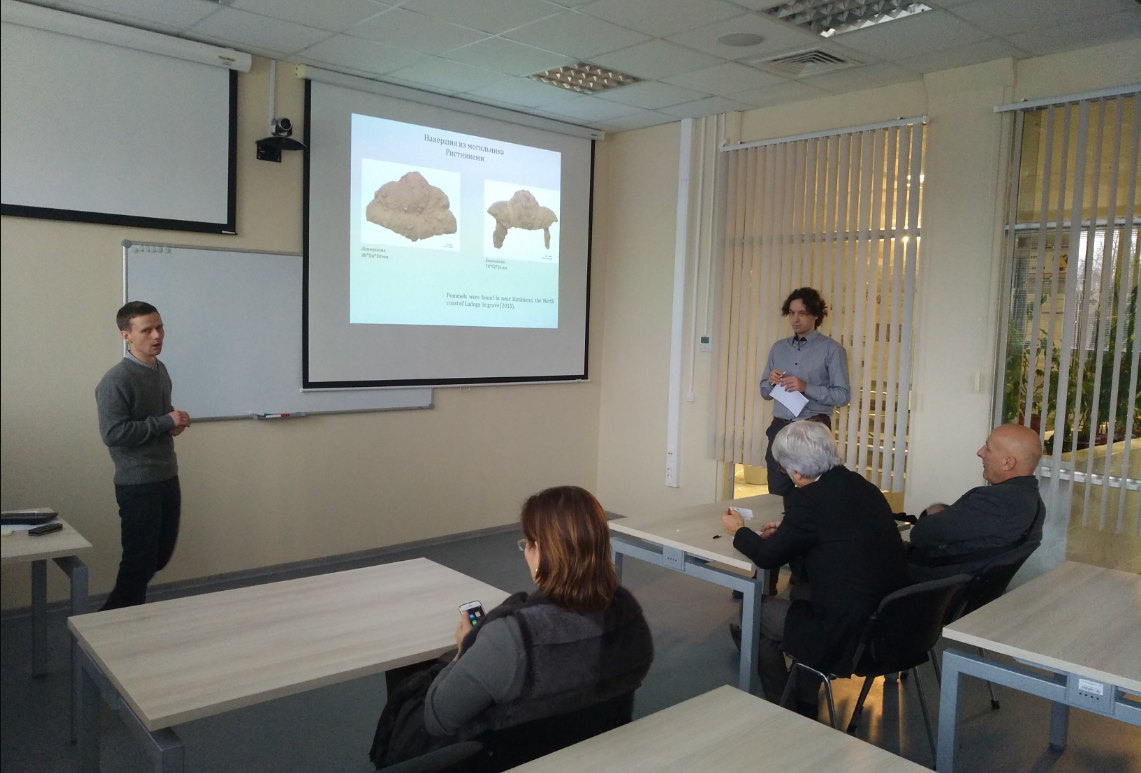05.03.2018 Acknowledging publications
Optics and Spectroscopy, 2017, Vol. 123, No. 6, pp. 965–969. © Pleiades Publishing, Ltd., 2017
A. I. Petrova, D. V. Pankin, A. V. Povolotckaia, E. V. Borisov, M. O. Beznosova, T. A. Krivul’ko , and A. V. Kurochkin
«Identification of Pigments in Colored Layers of a Painting by Raman Spectroscopy»
Optics and Spectroscopy, 2017, Vol. 123, No. 6, pp. 965–969. © Pleiades Publishing, Ltd., 2017
DOI: 10.1134/S0030400X17120128
Using the method of Raman spectroscopy the pigment composition is investigated of, and the brushwork technique used in, the original layer of a 19th century painting is established. It is an overdoor worked, presumably, by Antoine Jean-Etienne Faivre. It is established that the artist used the following pigments: cinnabar and dyes on the basis of goethite and hematite (for red, yellow–orange, and brown shades), ultramarine and Prussian blue (for blue shades), and Emerald green and a mixture of blue and yellow shades (to obtain a green color). It is determined that white lead was used a primer.

 English (UK)
English (UK)  Русский (РФ)
Русский (РФ) 
